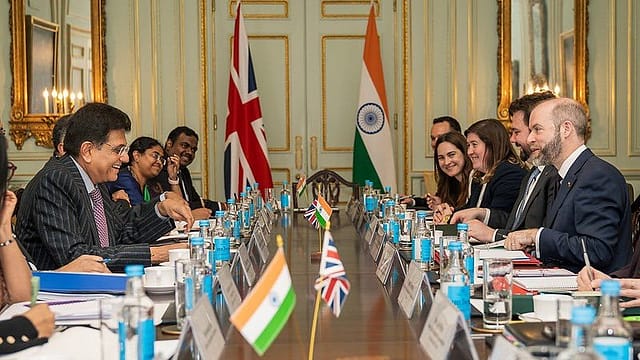India-UK trade deal opens $600 billion public procurement market to UK firms
ADVERTISEMENT

Once the India-UK Free Trade Agreement (FTA) gets implemented, India’s $600 billion government procurement market will be open for UK businesses. This will be the second FTA after India-UAE FTA where the partner country gets near national treatment in India’s public procurement business. Experts fear that unless India finds some way to protect the interests of domestic micro, small and medium enterprises (MSMEs) with some specific clauses in the FTA text, Indian MSMEs, who had exclusive access to government procurement market, could be losers.
A policy paper published by UK’s Department for Business and Trade claims that the ‘government procurement’ chapter in the FTA will guarantee access to the Indian government procurement market for UK businesses and ensure that government procurement processes in both countries are fair, open, and transparent. The paper says that for the first time, it will be possible for UK businesses to compete for a broad variety of goods, services, and construction procurements, for the majority of central government entities in India, as well as for several of India’s federal state-owned enterprises at thresholds lower than ever before.
In an analysis, Delhi based think tank Global Trade Research Institute (GTRI) said UK companies can now compete for approximately 40,000 tenders each year—in sectors such as construction, healthcare, energy, and transportation. These firms will also gain free access to India’s e-procurement portal, making participation easier and more informed, it says. The GTRI notes that UK firms with just 20% UK content in their goods or services will now be classified as ‘Class 2 Local Suppliers’ under India’s Make in India procurement rules—a status previously reserved only for Indian firms. This grants them the same eligibility to compete in tenders that are preferentially designed to promote Indian producers, GTRI says. However, the Make in India preference will still apply for approved ‘class 1’ suppliers offering 50% or more of their goods or services from India.
“Allowing UK firms to compete on near-equal terms could crowd out Indian MSMEs, which depend heavily on protected access to government contracts. It also dilutes one of India’s last remaining industrial policy tools—government procurement preferences—used to promote domestic manufacturing, innovation, and jobs”, says Ajay Srivastava, founder, GTRI.
“While UK companies gain broad access to India’s procurement system, Indian firms remain largely excluded from the UK’s closed and highly competitive government procurement market. With little reciprocal benefit, this sets a dangerous precedent for future FTAs and weakens India's leverage to defend domestic interests”, he adds.